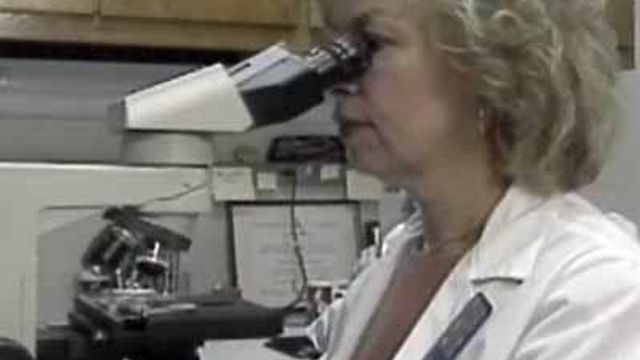Cancer screenings still a hot topic
Cancer screenings are always a crucial step in early detection of many cancers and can be vital in helping doctors provide patients with the best method for treatment, but recent changes in recommendations for certain cancer screenings may be confusing to many people.
Posted — UpdatedCancer screenings are always a crucial step in early detection of many cancers and can be vital in helping doctors provide patients with the best method for treatment, but recent changes in recommendations for certain cancer screenings may be confusing to many people.
It’s hard to know what type of screening to get and how often to get one.
A government panel of physicians used recent studies as their guide in evaluating both prostate cancer screening and tests for cervical cancer. It allows them to make more consistent recommendations to patients who have question about different types of screening.
Many local doctors say the studies provide a good baseline for how to approach screenings; however, the importance of individualized care for each patient is crucial in detecting and treating cancer.
One screening that has seen a shift recently is the routine pap smear, which helps diagnose cervical cancer. The U.S. Preventative Services Task Force says that for most women, annual tests lead to too many false positives.
Dr. Andrew Berchuck, a gynecological oncologist at Duke Hospital, said that the results of recent studies show that most women between 21 and 65 don’t have to have an annual pap smear.
“I think as evidence has accumulated over the years we’ve become more comfortable with less frequent testing intervals,” he said.
Berchuck says the combination of the pap smear test and HPV testing every three years should be sufficient for most women.
One area where local doctors disagree with the task force is PSA bllod tests used to detect prostate cancer in men 50 and older.
The panel says the PSA blood test can’t tell the difference between cancers that will and will not affect a man during his natural lifetime. Some worry that too many tests can be risky.
Dr. Stephen Freedland, a urologic surgeon at Duke Hospitals, disagrees with the panel completely.
“’Don’t get tested, because the knowledge of that test may be bad for you,’” he said. “That is what they are saying. I completely disagree.”
Prostate cancer survivor Charles Jackson said the annual screenings aren’t a problem.
“I’d rather know something and know what I’m dealing with as opposed to not knowing and suddenly getting a surprise,” he said.
Freedland agreed, saying that most patients with elevated PSA’s walk out with the decision not to treat but to monitor.
“Unless we know, there’s nothing we can do,” Freedland said. “To me, knowledge is power.”
Consult with a personal doctor about available screening for all types of cancer before making a decision.
• Credits
Copyright 2024 by Capitol Broadcasting Company. All rights reserved. This material may not be published, broadcast, rewritten or redistributed.





